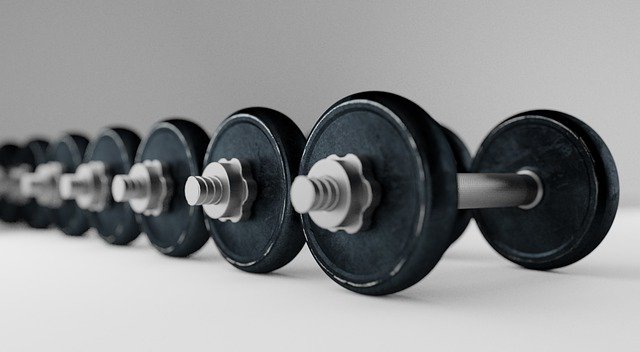
Are you prepared to start your muscle building journey? Building better muscle mass is, ultimately, about gaining the right knowledge and make the most of good advice. In this article, you will find some handy tips to get started right away. They can help you get the type of muscles that you have always wanted.
An often overlooked part of a good exercise program is warming up. Once your muscles are stronger they will be more prone to injury as a result of additional stress. By warming up, these injuries can be prevented. Prior to any heavy lifting, do some brief, low-impact exercises. Follow this with some intermediate warm-up repetitions.
Meat products are a good source of protein and help add muscle mass. Consume enough meat to amount to one gram of protein per pound of body weight. Doing this allows your body to hold more protein for muscle growth and improves the chances that you get the muscles you want.
Carbohydrates are important to building muscle. Carbs provide energy to your body, allowing you to make it through your workout. Otherwise, your body will break down your stored protein and muscle for energy instead. Eating enough carbs can help with your workout.
Creatine is a very popular supplement with muscle builders, but you need to use it with caution, especially if you are taking it for an extended time period. Avoid these all together when you face issues with your kidneys. Furthermore, creatine has been linked to muscle compartment syndrome, muscle cramps, and heart arrhythmia. Younger individuals are generally more susceptible to these problems. Be sure that you are using these supplements exactly as they are recommended.
You must consume enough protein to build muscle. A good way to consume protein is through shakes and supplements. They are especially beneficial after a workout and also right before going to bed. To replace fat with muscle faster, consume at least one protein shake a day. If you are looking to build both mass and muscle, drink up to three per day.
Muscle Mass
If you want to build muscle mass, your body must be properly hydrated. If you’re not drinking enough water, you could injure your muscles or yourself. In addition, your muscle mass depends on adequate hydration. You won’t be successful in building muscle if you are constantly feeling dehydrated.
Creating a schedule for your program can allow you to maximize your muscle building potential and prevent injury. You shouldn’t work out more than three times per week. Beginners should limit hard exercise even further; twice a week is sufficient.
One problem that can plague a person trying to maximize their muscle-building results is individual muscle groups that grow more slowly than others. Fill sets are wise in order to focus on the slower muscles. Target the particular muscle group with 25-30 reps of a specific exercise a few days after you last exercised that group.
A routine that is designed to build your muscles should have the net result of making you stronger. The result is that you’ll be able to increase the amount of weight you lift. If you are new to weight lifting, you should see an increase of approximately 5% in the weight you can lift every other workout session. If this type of progress is not being achieved, you should look over the things you are doing wrong. If you felt stronger in your previous session than you do now, maybe you need more time to recover.
Don’t exercise more than three or four times per week. By limiting your weekly workouts, you give your muscles time to recover from the intense exercises. Working out more than that may injure you and could be counterproductive to your goals.
One way to work around muscle groups that are holding you back is “pre-exhausting.” One example of this are your biceps becoming fatigued before lats on a row. You can correct this by doing isolation-type exercises, like straight arm pull-downs that won’t overly-stress the biceps. The result is that your lats are exhausted ahead of time and then when you row, your bicep won’t limit you.
Be careful about which exercises you perform with heavier weights, because not all movements are designed to be done with extra bulk. For instance, split squats, dips and neck work will damage your joints if you add too much weight. Keep the higher weights to exercises which are easier to complete, such as rows or standard squats.
If your workout goal is to build muscle, you need to make sure your diet consists of fresh whole foods. Avoid processed and packaged foodstuffs, as you can expect additives, chemicals, fillers and preservatives that harm your immunity and engender disease. Healthy foods are good for immune systems and help to build muscle.
Consider creatine supplementation. Creatine will help you push your body and be more effective in building your muscles. Any type of supplements should be taken with care. You should ensure that you read and understand the directions, then follow them exactly so as not to overdose yourself.
When lifting weights, more important than how frequent the workouts, how heavy the weights and how fast it is done, is one simple thing: technique. The entire routine should be practiced and mastered before increasing weight. It is ideal to do this early on using light weights so you are enabled to maximize later exercise with higher weights.
If you are ready to commit to getting a flab-free, tightly-toned, muscular body, you need an understanding of the process and helpful advice. Follow these tips and you will efficiently and quickly build muscle mass. Stay with it, and do not ever quit.